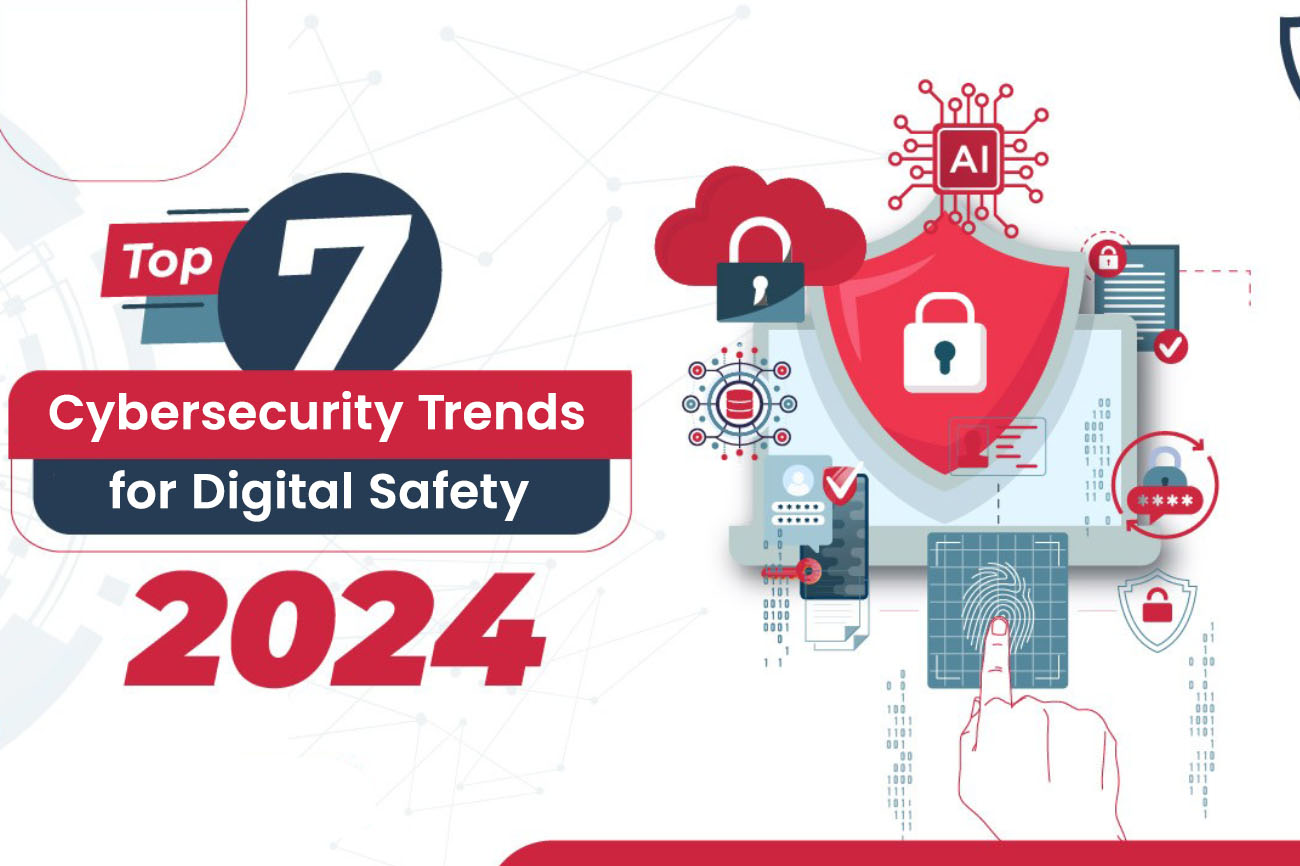
Stay Informed About These 7 Cybersecurity Trends in 2024
In today's digital world, cybersecurity is essential. As technology advances each year, we see new trends and strategies. It's not just about keeping our data safe anymore; cybersecurity in 2024 will be more complex and widespread than ever, with critical areas like Generative AI and Quantum Computing advancements posing new challenges.
Now, what is cybersecurity? It's about protecting systems, networks, and software from online attacks. These attacks aim to access, change, or destroy sensitive information, extort money, or disrupt business operations. But here's the challenge: there are more devices than people, and attackers are constantly inventing new ways to breach security.
-
What are the Three Goals of Cybersecurity?
These three core principles form the basis of any successful cybersecurity plan and are crucial for guiding professionals in the field.
-
-
Confidentiality: This involves preventing unauthorized access to data.
-
Integrity: It ensures that data and systems remain unchanged and accurate.
-
Availability: This ensures that data or systems can be accessed and used when needed.
-
-
Cybersecurity Trends 2024
-
-
GenAI and Machine Learning with Cybersecurity
Integrating GenAI and Machine Learning amplifies the frequency and complexity of cyber threats, posing business challenges. These technologies offer cybercriminals opportunities to carry out attacks like deep fakes and evolving malware, which could result in substantial damage. To effectively defend against such threats, organizations require AI-powered cybersecurity solutions that automate security procedures, uphold regulatory standards, and safeguard data. Additionally, companies must prioritize cyber insurance, implement centralized threat monitoring systems, educate staff on safely utilizing AI tools, and strengthen security protocols.
-
Growth of the Internet of Things (IoT)
The anticipation is that IoT devices will see broad acceptance by 2024. However, each device brings potential vulnerabilities, underscoring the need to include them in cybersecurity strategies. Integrating IoT devices has introduced additional intricacies to network configurations, presenting numerous challenges for cybersecurity efforts. In 2024, the primary emphasis and trends in IoT cybersecurity revolve around enhancing security measures for these interconnected devices and thwarting unauthorized access and cyber risks.
-
Rise of Quantum Computing
The emergence of quantum computing transforms data processing with its capacity to swiftly process large volumes of data. While it offers opportunities to enhance cybersecurity through improved encryption and threat detection, it poses challenges by potentially undermining existing security measures. As we advance, adapting to this evolving landscape requires updating encryption methods and strengthening systems to withstand the capabilities of quantum technologies.
-
Advanced Phishing Attacks
In 2024, as cyber attackers refine their techniques, detecting phishing attacks has become increasingly challenging. Moreover, the increased reliance on digital communication and remote work setups has provided cyber attackers with more opportunities to target unsuspecting individuals. Consequently, countering phishing attacks has become a significant priority for cybersecurity professionals, who are developing advanced methods for detection and prevention.
-
The Need for Education and Awareness
In 2024, cybersecurity faces a significant hurdle: the rising demand for proficient professionals to tackle cyber threats. With hackers becoming more advanced, there's a growing necessity for experts who possess the knowledge to safeguard us online. To tackle this challenge, educational institutions offer cybersecurity courses with specialized degrees and certifications, while professionals seek further training to remain updated. Furthermore, businesses are partnering with schools to ensure students gain the essential skills for real-world cybersecurity positions.
-
Blockchain and Cybersecurity
Initially linked mainly with cryptocurrencies, blockchain has evolved to become vital for improving cybersecurity. Its feature of generating immutable transaction records plays a significant role in protecting sensitive information. By 2024, it has established itself as a decentralized technology known for its security, making it challenging for hackers to manipulate recorded personal and financial data. The future of blockchain starts with securing IoT devices, improving smart contracts for safer online transactions, and offering advanced protection for digital data and IoT networks against cyber threats.
-
Zero Trust Security
Zero Trust Security became critical in 2023, changing from old ways of protecting the outside of networks. It believes that threats can come from anywhere, so it carefully checks who is trying to access resources, no matter where they are. In 2024, the main goal is to improve network security by constantly checking access and giving only limited permissions, especially with more people using cloud services and working from home.
-
Now that you have understood cybersecurity and how its threats are changing, both individuals and organizations must stay informed and alert. The trends in 2024 are just the start, moving us closer to a safer digital future with each new technology and strategy. However, the fight against cyber threats continues, highlighting the urgent need for robust, flexible cybersecurity measures.
Regarding cybersecurity in 2024, ensure that your plans and technologies align with maintaining information privacy, accuracy, and accessibility. Whether you're a technology enthusiast, a business leader, or an internet user, staying abreast of these subjects will prove advantageous. Therefore, consider enrolling in cybersecurity courses. This step will enhance your knowledge and empower you to be prepared and, above all, stay secure.
